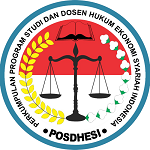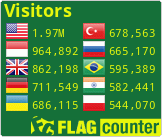Productive Zakat and Women's Empowerment for Inclusive Economy: Sharia Economic Law And Social Fiqh in Indonesia
DOI:
https://doi.org/10.32332/muamalah.v3i1.9248Keywords:
Productive Zakat, Women's Empowerment, Sharia Economic Law, Social FiqhAbstract
Women significantly contribute to the national economy through their Micro, Small, and Medium Enterprises (MSMEs) roles. However, they face inadequate support from government and private sectors in accessing formal financial services. This research addresses the gap in gender-inclusive financial support by exploring the potential of productive Zakat within the framework of Sharia Economic Law in Indonesia and social fiqh. The study aims to evaluate how productive Zakat can mitigate gender inequality and promote economic inclusion for women. A qualitative methodology with a normative approach was employed to address this issue, utilizing the social fiqh paradigm for analysis. As a legal product, the findings reveal that fiqh evolves with societal changes. Social realities, such as the discrimination women face in accessing financial resources, necessitate the adaptive allocation of Zakat. Precisely, dedicating Zakat to women reflects their unique economic challenges and highlights the need for specialized management structures to distribute productive Zakat effectively. This study contributes to the existing literature by demonstrating the practical application of Sharia Economic Law in Indonesia and social fiqh in addressing contemporary gender disparities in economic participation. The novelty lies in proposing a structured and professional management system for productive Zakat to empower women, fostering economic inclusivity.
Downloads
References
Downloads
Published
Issue
Section
License
Copyright (c) 2024 Chuzaimatus Saadah, Az Zahra Aulya Salsabila, Dwi Khalimah

This work is licensed under a Creative Commons Attribution-ShareAlike 4.0 International License.
All articles in the Mu'amalah: Jurnal Hukum Ekonomi Syariah can be disseminated on condition that they still include the identity of the article and the source (Mu'amalah). The publisher is not responsible for the contents of the article. The content of the article is the sole responsibility of the author.
Authors who publish this subject agree to the following terms:
First, the Authors retain copyright and grant the journal rights from the first publication with the work simultaneously licensed under a Creative Commons Attribution-ShareAlike 4.0 International License that allows others to share the work with an acknowledgement of the work's authorship and initial publication in this journal.
Secondly, the authors can enter into a separate or an acknowledgement of its initial (e.g., post-institutional repository or publish it in a book) publication in this journal.
![]()
Third, the authors are permitted and encouraged to post their work online (e.g., in institutional repositories or on their website) before publishing work is cited.








